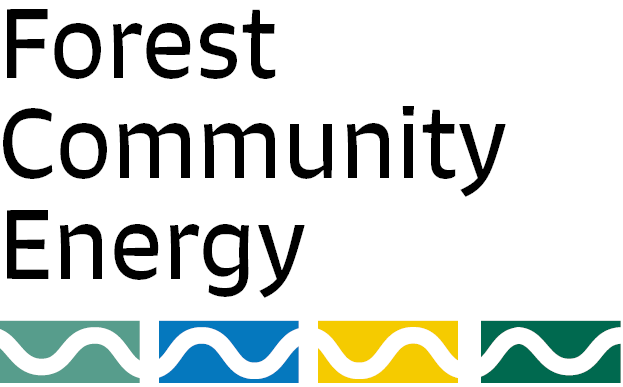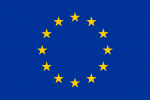International project AURORA launched to empower the people of Europe to take ownership of the climate change debate. Five crowdfunded demonstrators in Denmark, England, Portugal, Slovenia and Spain will be built to reduce the carbon footprint of 7000 citizens.
According to an ambitious new research project, the climate crisis can only be tackled effectively if citizens are empowered to play a much more active role in transforming the energy sector, taking a stake in delivering the EU’s ambitious target to reduce carbon emissions by 55% within a decade. Launched in December 2021 as part of the European ‘Green Deal’ initiative, the project called AURORA (“Achieving a new European Energy Awareness”) fosters an explicitly citizen-led, bottom-up approach compared to the more top-down strategies and political statements such as at the recent government summit in Glasgow (COP26).
“It is people who make the difference in climate change”, says project coordinator Dr. Ana Belén Cristóbal López, Technical University of Madrid: “Indeed it is often the poorest in our society who stand to gain most from reducing their carbon emissions and saving money on heating, lighting and transport.”
AURORA will work with 7,000 citizens across five locations in Denmark, England, Portugal, Slovenia and Spain, to give them a greater say in how their energy is generated and used. These communities of ‘citizen scientists’ will crowd-fund local photovoltaic facilities to produce a total of ca. 1 megawatt of renewable energy. To make the climate crisis less abstract for citizens, the project will first focus on creating awareness of the ‘carbon footprints’ of our daily energy choices. The citizens will receive tailored recommendations how to make more informed energy decisions to reduce their emissions.
The results will be shared with many other citizens across Europe with the goal to start a bottom-up movement for change. The project will therefore also advocate politically for a more citizen-driven approach to tackle the climate crisis, for instance by engaging with the Environment Programme of the United Nations and European policy makers preparing for the UN Climate Change Conference in Egypt (COP27) in 2022.
The AURORA project is a part of the EU’s renowned “Horizon 2020” programme and started in December 2021. €4.6 million will be invested over the next 3.5 years.
Background information
Key Drivers
The European Union has set itself ambitious goals to mitigate and adapt to the climate crisis: to cut down greenhouse gas emissions by 55% within less than a decade compared to the reference year 1990, and to make Europe the first climate-neutral continent by 2050. Three quarters of these emissions are a direct result of how people produce and consume energy. The AURORA project will allow citizens to play an active role in transforming this sector by giving them the tools to achieve these ambitions. The project will enable citizens to become both a producer and consumer of energy (‘prosumer’). It is going to foster local energy communities, powered by leading-edge photovoltaic technology, and thereby aims to transform the energy system at large, to make it more transparent, fair and sustainable.
The AURORA Project
AURORA is part of the EU’s renowned “Horizon 2020” programme. It started in December 2021 and will receive a total of €4.6 million in funding over the next 3.5 years. As a so-called Innovation Action, the project has a particularly applied focus and implements its innovative solutions directly in practice: Approximately 7,000 citizens across five locations in Denmark, England, Portugal, Slovenia and Spain, will join forces to become ‘Near-zero emission’ citizens. As ‘citizen scientists’, these communities will also crowd-fund photovoltaic facilities locally to produce a total of ca. 1 megawatt of renewable energy. A mobile app – also to be developed as part of the project – will allow participants to monitor their own behavioural patterns of heating and cooling, transport and use of electricity. In return, they will receive tailored suggestions on how they can lower their energy demand and reduce their costs. Approaches like these are meant to engage particularly younger generations and empower them to become agents of change beyond the project itself. Through workshops and hands-on activities, the project will encourage citizens to change their behaviour and attitudes towards energy.
The four locations in continental Europe will be established around university campuses as hubs for social innovation; a fifth demonstrator will be established in one of England’s economically most deprived regions, where the authorities declared a state of ‘Climate Emergency’ in December 2018.
The AURORA project consortium comprises nine institutions from six countries. The endeavour is coordinated by the Technical University (Universidad Politécnica) of Madrid, Dr. Ana Belén Cristóbal López from the university’s Solar Energy Institute. During the project kick-off in Madrid, coordinator Dr. Cristóbal described the ambitious goals as follows: “AURORA aims at nothing less than to help local communities democratise the governance of their energy systems. Also marginalised groups will be empowered to make more informed and thus more sustainable energy decisions.”
The AURORA project consortium:
- Technical University of Madrid, Spain (Project Coordinator)
- Aarhus University, Denmark
- Centre for Sustainable Energy, United Kingdom
- Forest of Dean District Council, United Kingdom
- Institute for Science & Innovation Communication, Germany
- KempleyGreen Consultants, United Kingdom
- Qualifying Photovoltaics, Spain
- University of Ljubljana, Slovenia
- University of Évora, Portugal
Further information and contact:
Website: www.aurora-h2020.eu
Email: info@aurora-h2020.eu
The Project Coordinator and the representatives of all five demo-sites are available for media enquiries / interviews.
The full press release is also available in the following languages:




